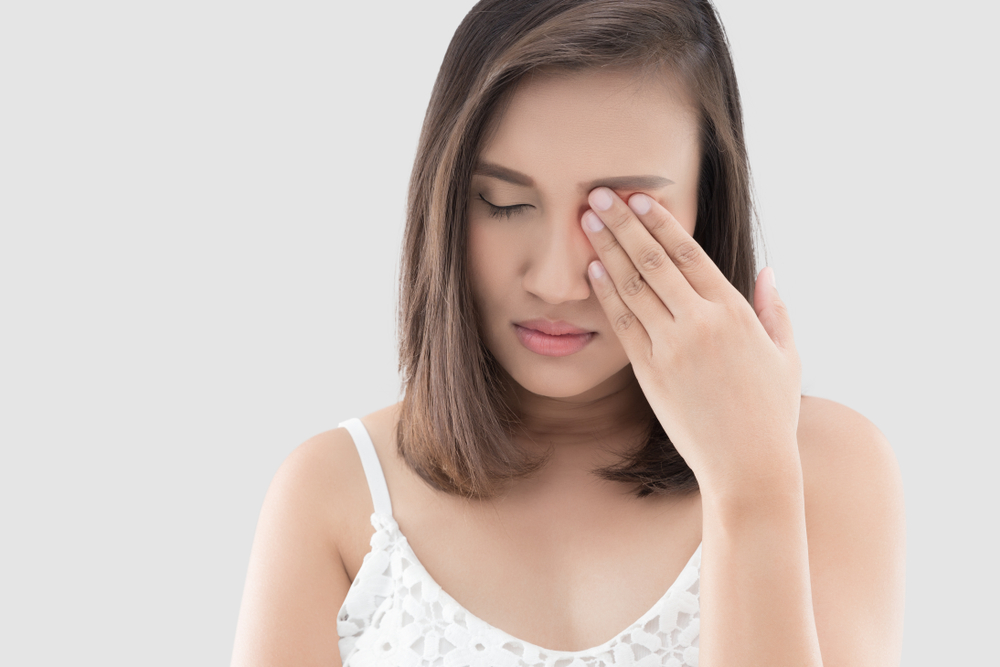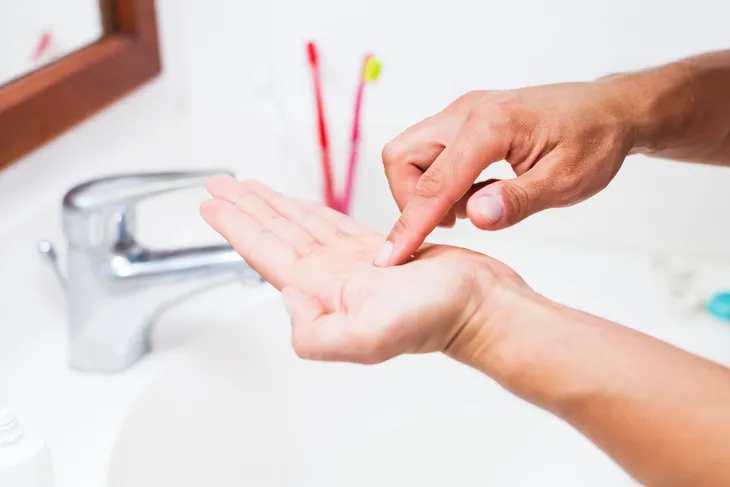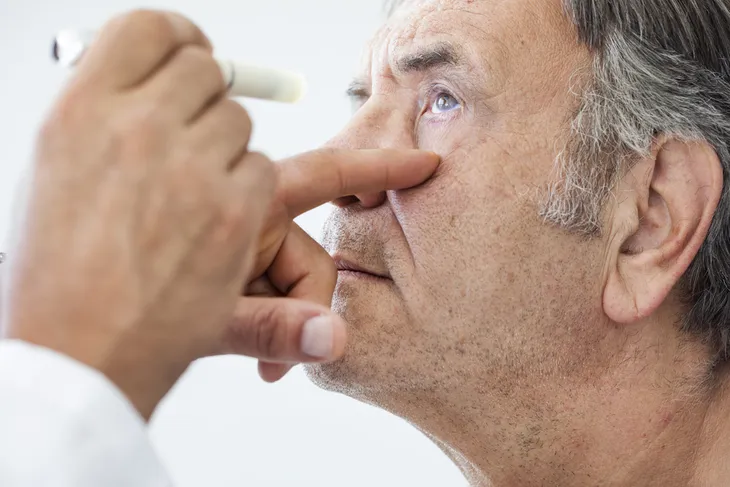There’s nothing more uncomfortable than a set of dry eyes! This occurs when there isn’t enough lubrication in the eyes from tears. While it can happen in one eye at a time, it usually affects both eyes at the same time and can happen for many reasons, such as staring at a computer screen, riding a bike, or even allergies. It will likely cause your eyes to sting and burn.
You might think tears are only for crying, but they actually serve a bigger purpose. They are meant to keep our eyes moist and well lubricated. They’re made from a mix of water, oils, mucus, and antibodies that keep infection at bay. When a person is experiencing dry eyes, it generally means their tear system isn’t working as it should.
Here’s a look at some of the common causes behind chronic dry eyes…
1. You Have an Autoimmune Disorder
Studies show that chronic dry eye can be a symptom of several autoimmune disorders—such as scleroderma, lupus, Sjögren’s Syndrome, Grave’s disease, and rheumatoid arthritis.
For example, research from Michigan University’s Kellog Eye Center, report that Grave’s disease is a type of thyroid disorder that can impact the muscles and tissues around the eye, including the tear ducts, resulting in decreased tear production.
2. Vitamin Deficiency
The Mayo Clinic links dry eyes to a nutritional deficiency—namely a vitamin A deficiency. This just goes to show how important diet is to overall health, including ocular health.
Vitamin A rich food sources include sweet potatoes, leafy greens, broccoli, pumpkin, and carrots can help maintain the natural health and lubrication of the eyes. Upping your intake of omega-3 fatty acids can also help encourage natural eye lubrication and relieve red, itchy, dry eyes.
3. Contact Lens Wearer?
Many long-term contact lens wearers will gradually develop dry eyes over the course of use. Research from Patient.info suggests that long-term wearing of contact lenses can interfere with the natural layer of tears that coats and protects the surface of the eyes.
Contact lenses can lead to the evaporation of this natural layer of lubrication, causing the eyes to feel dry and gritty. Contact lens wearers can combat dry eyes by swapping out lenses for glasses regularly, or by opting for a more moisturizing pair of disposable contact lenses.
4. Excessive Screen Time
You wake up and check your email and social media on your smartphone, you work 8-hours pinned to your computer screen, and you return home to dinner in front of the television. Well, little surprise that you suffer from dry eyes.
Excessive screen time can significantly lower how often you blink your eyes, and blinking is the naturally way your eyes re-lubricate with a secretion of tears, mucus, and natural oils.
5. Prescription and Over-The-Counter Medications
If you take any medications, either prescription or over-the-counter, your doctor of pharmacist likely went over the long list of side effects with you. Dry eyes are a common side effect because medications will often impact natural tear production.
Many medications can lead to dry eyes, however, most notably are antihistamines, decongestants, antidepressants and anti-anxiety meds, sleeping pills, diuretics, blood pressure drugs, and painkillers. If you’re eyes are dry due to a new medication, talk to your doctor about an appropriate alternative.
6. Age Related Dry Eye
As we age, the body begins to gradually decline. And since I passed 40, you bet I’m starting to really comprehend what that means. The eyes, along with the rest of the body, also experience the byproducts of aging.
Janet Cushing, OD, clinical optometrist with Madison’s University of Wisconsin School of Medicine & Public Health, explains that with age, the tear ducts can suffer inflammation and produce less tears. Cushing says this is common with age and that roughly 30-percent of individuals over 50-years of age experience chronic dry eye as a result.
7. Corrective Eye or Eyelid Surgery
If you’ve considered LASIK surgery to correct your vision, or if you’ve undergone eyelid surgery, dry eye can be a common side effect, along with poor night vision (halos and blurred vision in dark). Folks who undergo corrective eye or eyelid surgeries can experience dry eyes for up to six months following their surgery.
The Ophthalmic Consultants of Vermont explain that during the LASIK procedure nerves are cut in the anterior cornea to create a flap, which can decrease normal corneal sensitivity and create a subtle sensation of dryness that stimulates tearing up and blinking.These same nerves trigger the production of tears. Post-surgery the eyes may not tear or blink normally so the use of artificial tears is recommended until new nerves and sensation rejuvenates in the cornea.










